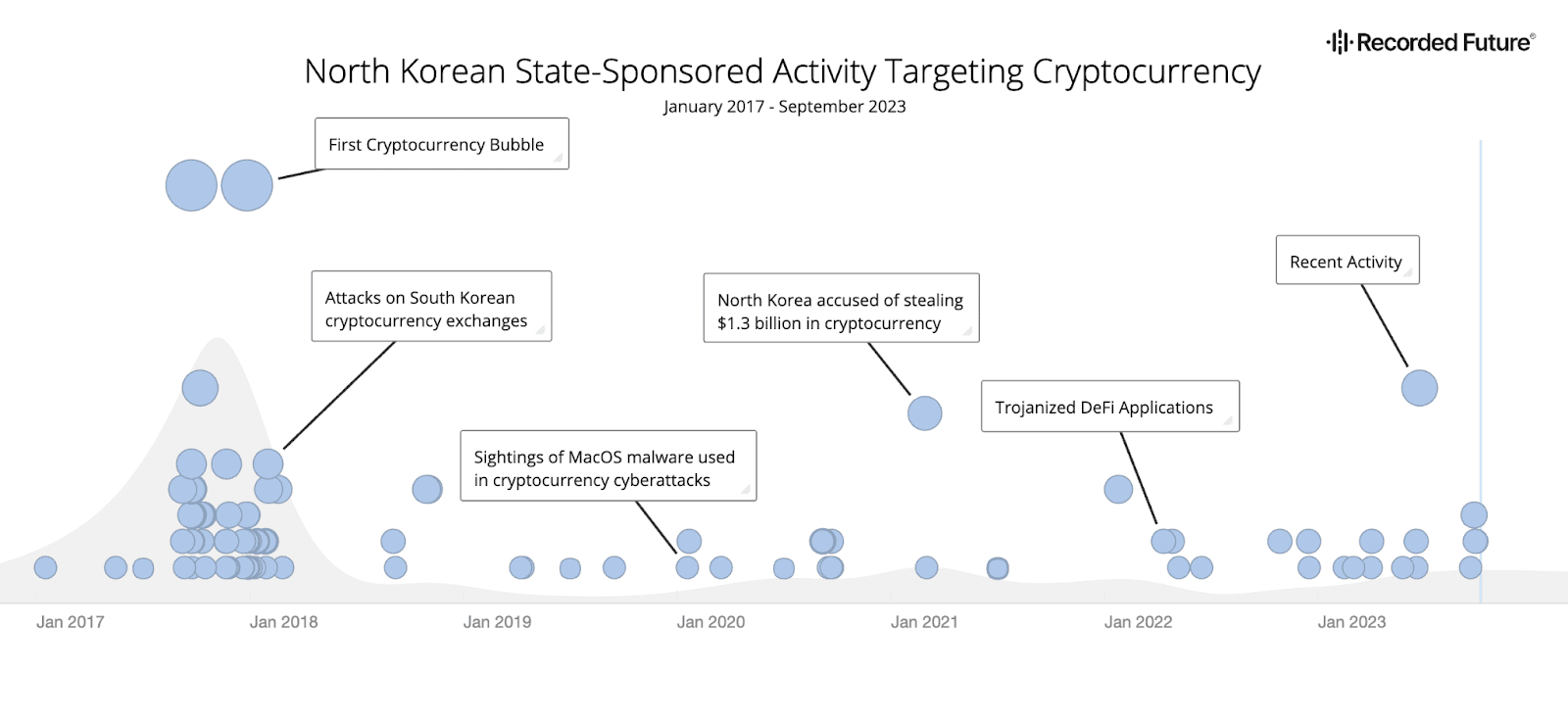
North Korean state-sponsored activity targeting the cryptocurrency industry (Source: Recorded Future Intelligence Cloud)
Under the cloak of cyberspace, North Korean cyber criminals have weaponized their skills to become the world’s most proficient cryptocurrency thieves. Their audacious heists, amassing a staggering $3 billion in digital assets, have not only disrupted global cybersecurity but have also fueled their nation’s illicit economy and military aspirations. In a groundbreaking report, Recorded Future’s Insikt Group delves into North Korea’s mastery of cryptocurrency theft, unraveling the intricate strategies and tactics behind their unprecedented success.
North Korea’s dive into digital theft dates back to 2017, coinciding with the cryptocurrency boom. Initially focusing on South Korea’s burgeoning crypto market, these cybercriminals swiftly expanded their operations globally. Their prime targets: cryptocurrency exchanges, individual users, venture capital firms, and even emerging technologies.
The staggering amount of $1.7 billion in stolen cryptocurrency in 2022 alone, equating to about 5% of North Korea’s economy or 45% of its military budget, starkly illustrates the scale and impact of these operations.
North Korean cyber operations are distinct for their sophistication and broad targeting scope. Unlike traditional cybercriminal groups, state support allows these actors to scale their operations significantly. They exploit a variety of techniques, including cryptocurrency mixers, cross-chain swaps, and fiat conversions, to launder their ill-gotten gains.

Their modus operandi often mirrors traditional cybercriminal tactics but on a grander scale. They employ phishing campaigns, credential harvesting, and intricate money laundering networks to cover their tracks. These activities are not limited to the digital realm; they extend to the physical world, involving smuggling and other illicit activities.
The consequences of North Korea’s cyber activities extend beyond financial loss. The regime uses these stolen funds to circumvent international sanctions and finance its military and weapons programs, including its ballistic missile initiatives. This criminal enterprise has effectively become a critical component of North Korea’s national strategy, supplementing its economy under stringent international sanctions.
In response to these escalating threats, cybersecurity professionals and organizations are advised to adopt robust security measures. These include multi-factor authentication, regular monitoring of digital assets, and enhanced awareness of phishing and other social engineering tactics.
Individuals and organizations within the cryptocurrency industry must be particularly vigilant, as they represent prime targets for these threat actors. Enhanced cybersecurity protocols and continuous vigilance are essential in safeguarding against these sophisticated and persistent threats.
North Korea’s state-sponsored cybercriminals have transformed digital theft into a national enterprise, proving that in the realm of cyberspace, geographical isolation does not equate to operational limitation. Their actions pose a significant challenge to the global community, necessitating a concerted and proactive approach to cybersecurity.